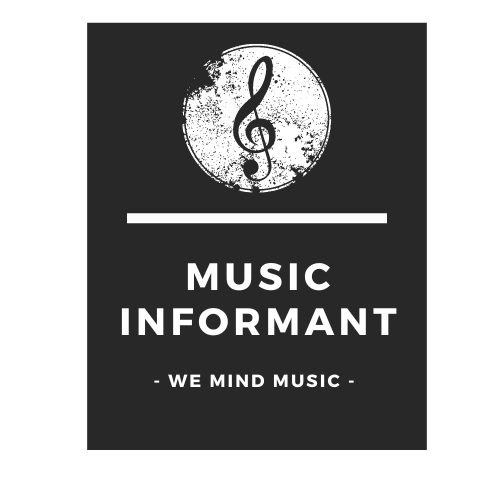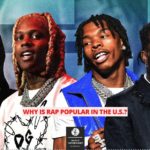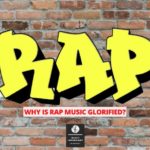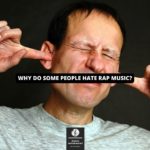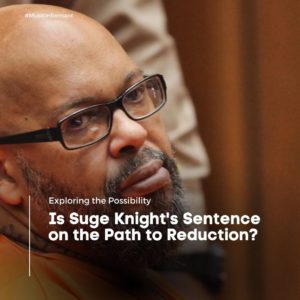
Why doesn’t rap music have that many subgenres: Let’s talk about rap music. You guys know how much I love rap and hip-hop, right? It’s the reason I created this newsletter. There are many reasons to like rap music, but you can’t deny there aren’t many different subgenres. So what gives? Didn’t they break it down into a million categories in Brooklyn? Why can’t they do that with rap music?
So, Why doesn’t rap music have that many subgenres?
One of the reasons rap music doesn’t have that many subgenres is that it’s a relatively new genre. It only started to gain traction in the 1960s, and only a handful of artists were performing in the genre. These artists mainly were doing covers of other artists’ songs, which meant they didn’t have time to develop their own style or sound.
As rap gained popularity, it became more lucrative for artists to create original content rather than cover songs. This created more opportunities for artists to develop unique styles and sounds, leading to more rap music subgenres.
10 Reasons Why Rap music doesn’t have that many subgenres?

- Rap music has always been a short, simple, and straightforward genre. It doesn’t need a bunch of different subgenres to keep it interesting.
- Rappers have always been about rebellion, so there’s little room for experimentation.
- The lyrics are usually so explicit that they don’t allow experimentation with style or instrumentation.
- Rappers have always tended toward hyper-masculinity and machismo.
- There aren’t a lot of rules when it comes to what makes a good rap song.
- Hip-hop was created to respond to the injustices black people faced in America during the 1960s and 1970s.
- The lyrics are not as impactful as other genres like country or rock.
- It’s challenging to tell whether or not you’re listening to an original song or one that another artist has remixed.
- Because rap is a spoken word form.
- Rap music has a powerful connection with the African American community and culture.
Rap music has always been a short, simple, and straightforward genre. It doesn’t need a bunch of different subgenres to keep it interesting.
Rap music has always been a short, simple, and straightforward genre. It doesn’t need a bunch of different subgenres to keep it interesting.
The genre has grown to include many styles of rapping and production, but the core element remains: hip-hop is rap that tells a story. That’s why it’s so easy to understand and enjoy—the lyrics are straightforward and relatable. It’s unlike metal or jazz, where there are a million different subgenres without a clear distinction.
There are plenty of different types of rap music, but it all comes from the same place: hip-hop culture.
Rappers have always been about rebellion, so there’s little room for experimentation.
Rap music has a long history of rebellion and experimentation.
That’s why there are so many subgenres in rap.
The genre started as an outlet for African-Americans to express their frustrations with society and the government, leading to hip-hop culture’s birth.
Rap artists used their music to speak out against racism, poverty, and police brutality by creating songs inspired by their experiences growing up in urban areas where these issues were rampant.
As time went on, more people began listening to rap music because it was so popular within those communities—and there was no shortage of creativity when it came to creating new styles for listeners who were looking for something fresh every time they heard a new track from someone like Eminem or Kanye West.
The lyrics are usually so explicit that they don’t allow experimentation with style or instrumentation.
Rap music is one of the most popular genres in the world. It’s also one of the most divisive. Some people love it, and others can’t stand it. But no matter how you feel about rap, there’s no denying it’s unique among other genres. One of the reasons for this is that rap doesn’t have a lot of subgenres.
The lyrics are usually so explicit that they don’t allow experimentation with style or instrumentation. They’re just rapped over simple beats and rhythms. So while there are many different kinds of rock, country, and pop music, there isn’t much variation within rap.
Rappers have always tended toward hyper-masculinity and machismo.
Rap music has always been a male-dominated genre, which means that it’s typically very conservative. In terms of the sounds it incorporates. Rappers have always tended toward hyper-masculinity and machismo. They don’t like to experiment with their sound too much because it might make them appear less manly!
As a result, there aren’t many subgenres of rap music. The existing ones tend to be related to other genres, such as hip-hop or dancehall. The lack of experimentation in this genre is unfortunate because we’re missing out on some exciting and innovative sounds!
There aren’t a lot of rules when it comes to what makes a good rap song. It’s more about having good rhymes and flow than anything else.
Rap music is one of the oldest genres of music, and it’s still going strong.
There are three main reasons why rap music has been able to maintain its popularity for so long:
-There aren’t a lot of rules when it comes to what makes a good rap song—it’s more about having good rhymes and flow than anything else—so there isn’t any pressure on rappers to change up their style if they already have one that works well enough for them!
-Rap is an easy genre to produce, meaning that artists can make their beats, record their vocals and develop their lyrics on their own time. This means that artists can focus on developing their skills instead of spending time learning how to record an album or produce beats.
-Rap music has been around for so long that it’s become part of our culture as Americans—we know what it sounds like, and we know what kind of rhythm patterns we’re going to hear when we listen to someone rap about something important (like why they left their wife).
Hip-hop was created to respond to the injustices black people faced in America during the 1960s and 1970s.
Hip-hop is a genre of music that originated in New York City during the late 1970s. African American and Puerto Rican communities developed the genre to express themselves through music, poetry, and dance. The genre has since become one of the most popular genres in music today, especially among young people.
The lyrics of hip-hop songs often contain themes about racism, police brutality, poverty, politics, and other issues concerning racial minorities in America. Hip-hop artists also use their music to express their identity as African Americans or Latinos living in America today.
Because hip-hop was created by African Americans as an expression of their culture and experiences as minorities in America’s society today. There aren’t many subgenres within this genre because it would be difficult for non-black artists to create music that reflects these same experiences. Without sounding like they’re copying them instead (which could lead to legal issues).
The lyrics are less impactful than those in other genres like country or rock. (Depending on whom you might ask) Eminem, 50 Cent, the Game, etc.) I would tell you lyrics matter more than the beat, and I agree.
Rap music is less popular than country or rock and has fewer subgenres.
Rap music is less popular than country and rock because it’s not as interesting. If you want to hear someone sing about how they love their family and what they’ve overcome in life, you’ll probably listen to country music.
And if you want to listen to someone scream their lungs out about how angry they are at the world, who has wronged them, or who they’re going to kill—you’ll probably listen to rock. But if you want something fast-paced with a beat that keeps your head bobbing in time with the rhythm? Why would you ever choose rap over rock?
It’s difficult to tell whether you’re listening to an original song or one that another artist has remixed.
One of the most unique things about rap music is its lack of subgenres. Most other genres have many different types of music, but not rap. Rap has a few different kinds of beats and rhythms, but it doesn’t have many subgenres.
This is because when you’re listening to a rap song. It’s difficult to tell whether or not you’re listening to an original song or one that another artist has remixed. This makes it hard for listeners to know what kind of music they are listening to at any given time.
Because rap music has such a wide range of sounds, it’s difficult for fans or artists alike to recognize what style they’re listening to when they hear it on the radio or in their headphones.
This is why there are so many versions of songs like “Gangsta Gangsta” by NWA and “I Got 5 On It” by Luniz. Because there were so many different artists remixing them!
Rp is a spoken word form.
Rap is a spoken-word form and, as such, has always been less concerned with subgenres than other music genres.
That said, there are multiple ways to categorize rap. One approach is to divide rap into three styles: old school, gangsta, and new school. These categories are based on the period when each style emerged on the scene and how critics received them at their respective times.
Old-school rap is characterized by its emphasis on rhythm and rhyme over other musical elements. It was popular in the 1980s and 1990s and is still widely considered today’s most influential hip-hop style.
Gangsta rap emerged later than old-school rap but still before new-school rap became popular in the early 2000s, with artists like Eminem and 50 Cent becoming household names for their gritty depictions of urban life in America’s inner cities.
New school rap emerged just as pop culture changed dramatically around 2001 due to the 9/11 attacks on American soil. This was followed by war overseas that included American soldiers fighting against terrorism abroad while also dealing with PTSD back home upon returning from deployment overseas (this time).
Rap music has a powerful connection with the African American community and culture.
Rap music has a powerful connection with the African American community and culture.
This connection makes it so unique and attractive to listeners, but also why it is so difficult to break into subgenres.
First, rap music has been around since the late 1970s, when groups like Sugarhill Gang first popularized it. Second, it is heavily influenced by jazz and rhythm-and-blues music, both created by African Americans in America. Thirdly, some of the most well-known rappers are black people (like Kanye West or Eminem). Finally, most rappers come from poor backgrounds, and many have been arrested for committing crimes during their career as rappers (such as Tupac Shakur).
The genre of rap music has been around since the 1970s and has always been associated with African American culture. The style of rap that is most popular today originated in New York City, which was a central hub for African Americans in the United States during this period.
Rap became popular because it allowed people from all different backgrounds to relate to one another through the common language of hip-hop music. Today, rap music continues to have a strong connection with its original audience by focusing on themes such as social justice issues or political debates within the black community.
Conclusion: Why doesn’t rap music have that many subgenres?
Over the years, rap has become a pretty demanding genre of music. The severe and thoughtful lyrics that once characterized rap have been diluted. Diluted by a decade of pop music dominance. The catchy beats that dominate the top-chart songs are far from what Rapper’s Delight was offering.
As mentioned before, the accessibility and popularity of rap mean that it suffers greatly in terms of sub-genres. The same can be said for other genres, such as rock and metal, but rap has even fewer subgenres simply because its lyrical content only allows so much variety.
This article is written by @MusicInformant // All Rights Reserved.
